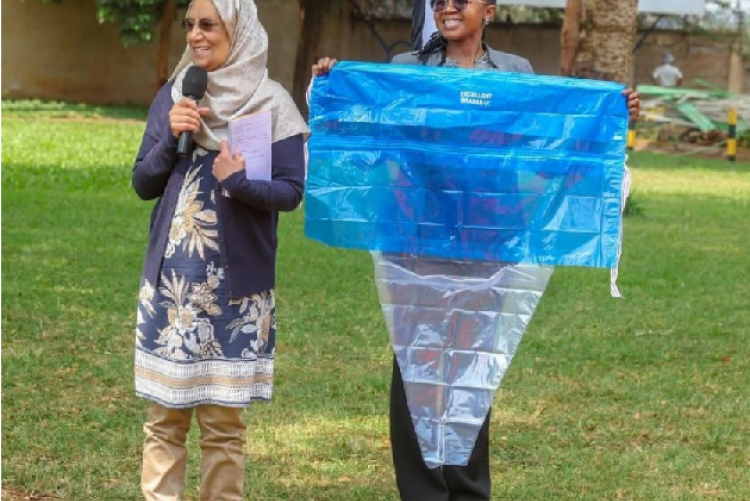Today at the 25th FIGO congress being held in Cape Town South Africa, the WHO-FIGO-ICM Consolidated Guidelines for Postpartum Haemorrhage will be launched and there will be a Declaration of 5th October as World Postpartum Day!
I, as a senior researcher has been privileged and honored as a Principal Investigator for Kenya to have made contributions towards the evidence base for prevention, early diagnosis and treatment of Post-Partum Haemorrhage over the last several years, through partnerships with The World Health Organization, University of Birmingham, London School of Hygiene and Tropical Medicine, Merck for Mothers among others.
To achieve the Sustainable Development Goals, (SDGs) indicators on maternal health, Kenya is working towards reducing maternal deaths from 355/100,000 to less than 140 deaths/100,000 live births by the year 2030, contributing to the global commitment to reduce it to less than 70 maternal deaths /100,000 live births. This high mortality rate underscores the urgent need for improved maternal healthcare services and interventions to address and manage these complications effectively.
Globally about 70,000 women die from PPH every year and the major burden of this in Sub-Saharan Africa. In Kenya Post partum hemorrhage contributes to 40% of maternal deaths.
Factors contributing to this include limited access to quality prenatal and postnatal care, poor quality of maternal health medicines, inadequate healthcare infrastructure, shortage of skilled healthcare professionals and limited translation of national guidelines to practice. This high mortality rate is exacerbated by factors such as poverty and cultural practices that encourage home births, which often lack the necessary medical support and interventions to manage severe bleeding. Even for those who seek medical care, the quality of drugs used, such as oxytocin and tranexamic acid, can be substandard.
The largest prevention and treatment trials on PPH that have led to change in policy and guidelines in the recent years are:-
- WOMAN Trial (World Maternal Antifibrinolytic Trial)- which led to the introduction of use of Tranexamic acid within 3 hours of the PPH
- Champion Trial – which proved that Heat Stable Carbetocin (HSC) was Non-inferior to Oxytocin for prevention of PPH and this has led to registration of HSC and now role out of its use country wide.
- https://www.nejm.org/do/10.1056/NEJMdo005325/full/
- In 2023 the E-MOTIVE trial marked a turning point. By combining objective blood-loss measurement with a rapid “first-response bundle,” E-MOTIVE cut severe PPH outcomes by about 60% across hospitals in Kenya, Nigeria, South Africa and Tanzania.
UoN has donated hundreds of calibrated drapes, several doses of Tranexamic Acid amongst other essential equipment such as maternity beds, training models, PPH emergency trollies amongst others across the 19 facilities that participated in the Emotive trial.
Since E-MOTIVE's publication in 2023, Kenya was able to develop the costed implementation plan, update the Comprehensive Emergency obstetric care guidelines and start training health care providers on use of Heat-Stable Carbetocin (HSC) for PPH prevention, early blood loss measurement by using the calibrated drape and on recognition of PPH activate and the first response bundle “Massage of the uterus, Oxytocic drugs, Tranexamic acid, Intravenous fluids, Examination and Escalation (MOTIVE) for PPH treatment.
The University of Nairobi continues to conduct high impact research on maternal health /pph and the recently initiated one is the REACH Trial (Research to Expand Access to Heat-Stable Carbetocin for the Treatment of Postpartum Hemorrhage). Participating facilities are Pumwani Maternity Hospital, Machakos level 5 and Nakuru level 5 hospitals. This trial compares Oxytocin to Heat stable Carbetocin for treatment of PPH.
I wish to recognize and appreciate my robust research team at the Department of Obstetrics and Gynaecology University of Nairobi which comprises my Obstetrics/Gynaecology colleagues Prof Alfred Osoti, Dr George Gwako, study pharmacist Dr Mugendi and research coordinators /Implementation midwives, Jenipher Okore, Polycarp Oyoo, Jim Kelly Mugambi, Nancy Mose, admin and data teams.
- Log in to post comments

